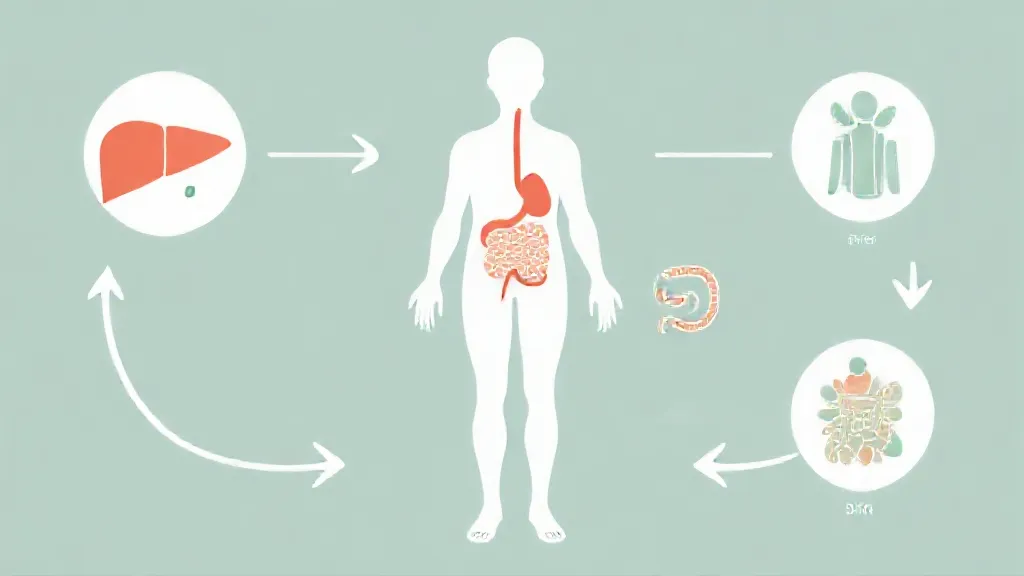Toxins are substances that can adversely affect the body, and detoxification is the process through which the body eliminates these harmful compounds. This article explores where toxins go during a detox, shedding light on the mechanisms of detoxification, the organs involved, and the overall impact on health. Understanding this process is crucial for anyone considering detox diets or cleansing regimens, as it provides insight into how to support the body effectively during these times.
The Role of the Liver in Detoxification
The liver is the primary organ responsible for detoxification. It processes toxins by converting them into less harmful substances that can be excreted from the body. This process occurs in two phases: Phase I involves the modification of toxins through oxidation, reduction, or hydrolysis, while Phase II focuses on conjugation, where these modified toxins are made water-soluble and ready for excretion.
The liver utilizes enzymes to facilitate these reactions, which are influenced by various factors, including diet, genetics, and exposure to environmental toxins.
Kidneys: The Body's Filtration System
Once the liver has processed toxins, they are often sent to the kidneys for filtration. The kidneys play a crucial role in excreting waste products and excess substances from the blood.
They filter out toxins, which are then excreted in urine. The efficiency of the kidneys can be affected by hydration levels, overall health, and the presence of other health conditions. Maintaining kidney health is essential for effective detoxification, as impaired kidney function can lead to a buildup of toxins in the body.
The Role of the Gut Microbiome
The gut microbiome is another critical player in the detoxification process. A healthy gut flora can help break down toxins and support the liver's detoxification efforts. Certain probiotics and prebiotics can enhance the body's ability to eliminate toxins by promoting a balanced gut environment.
A well-functioning digestive system ensures that toxins are efficiently processed and excreted through feces. Therefore, incorporating fiber-rich foods and fermented products during a detox can support gut health and enhance toxin elimination.
Skin: The Body's Third Kidney
The skin, often referred to as the body's "third kidney," also plays a role in detoxification.
Through processes such as sweating, the skin can eliminate some toxins. This is particularly evident during intense physical activity or sauna use, where sweating can help remove heavy metals and other harmful substances. Maintaining skin health through hydration and proper skincare can enhance this natural detoxification pathway.
The Importance of Hydration
Hydration is a crucial aspect of any detoxification process. Water aids in the transport of toxins to the kidneys for filtration and helps maintain optimal blood volume and circulation. During a detox, it is essential to drink plenty of water to support the kidneys and liver in their efforts to eliminate toxins.
Herbal teas and infused water can also provide additional benefits, as certain herbs may have diuretic properties that further promote toxin elimination.
Detoxification and Emotional Well-being
Detoxification is not solely a physical process; it can also impact emotional and mental well-being. The release of toxins may lead to various emotional responses, including mood swings and irritability.
This is often referred to as "detox symptoms." Understanding that these feelings are part of the detox process can help individuals navigate their emotional landscape more effectively. Incorporating mindfulness practices, such as meditation or yoga, can aid in managing these emotional shifts during a detox.
Supporting Detoxification Naturally
To enhance the detoxification process, individuals can adopt certain lifestyle changes. Eating a balanced diet rich in antioxidants, vitamins, and minerals can support liver function and overall detoxification. Foods like leafy greens, cruciferous vegetables, and berries are particularly beneficial.
Additionally, regular physical activity can improve circulation and promote sweating, further aiding in toxin elimination.
Conclusion: Understanding the Detox Journey
In conclusion, understanding where toxins go during a detox is vital for anyone interested in improving their health through cleansing practices. The liver, kidneys, gut, and skin all play integral roles in the detoxification process.
By supporting these organs and maintaining a healthy lifestyle, individuals can enhance their body's ability to eliminate toxins effectively. As always, it is advisable to consult with a healthcare professional before embarking on any detox regimen to ensure it is appropriate for individual health needs.
